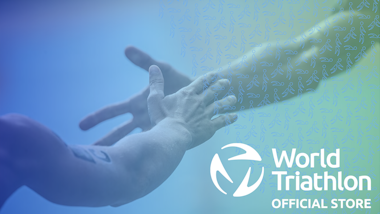Triathlon helping to reconstruct the lives of Syrian athletes and coaches
16 November, 2018 | español

When a city, or indeed an entire country, is devastated through years of cruel war, sport is often one of the first things to disappear from its communities. It is also, however, one of the main tools that people use to try and keep going forward with their regular lives. That is precisely why the International Triathlon Union is supporting triathletes and coaches from Syria to try to stay in the game and go back to where they were years ago, with facilities to train at, events to compete in and a brighter future ahead of them.
With funds from ITU Development and the Olympic Solidarity Committee of the IOC, and with cooperation between the Syrian and Lebanese National Olympic Committees and Triathlon Federations, 19 coaches from Syria have just finished an ITU Coach Level 1 course in Lebanon. The event taking place just a couple of weeks after the Syrian Federation organized its National Championships in the city of Aleppo.
“We are so proud of initiatives such as this”, said ITU President and IOC Member, Marisol Casado. “One of the main goals at ITU is to support our Development programmes for athletes, coaches and officials, and when we have the chance to help people who have suffered so much but still want to be an active part of our sport, then we need to give them all the support that we can, and be absolutely proud of their commitment and their strength”, she said.
“It is amazing that in a region like Syria, in a city like Aleppo, they are still able to organize a triathlon with a high level of competition, despite the lack of resources they have. From ITU, we will continue to support them as much as we can, helping them to fulfil their dreams of a better future through our sport”, Casado explained. The first fruits of this support to the Syrian athletes and Federation saw Zakaria Alkarrat become the first Syrian triathlete to compete at the Youth Olympic Games when they were held in Buenos Aires in October, where he finished in 17th place.
For the second time since 2017, when a relative stability and peace returned to the Syrian city, and despite the lack of training equipment, a large number of male and females triathletes competed at October’s National Championships in Aleppo, organised by Ahmad Banna, member of the Board of the Syrian Triathlon Federation, a resident in the war-torn city, and one of the main figures in pushing the sport to return to where it was in this region before the war.
Pursuing his dream of keeping up with developing triathlon in his country, Banna was also one of the coaches invited to participate at the Level 1 Coaches Course taking place in the neighbouring Lebanon from November 13. “Courses like this will ensure that triathlon will arrive to everyone in a safe and a perfect way,” he said.
The coaches participating in the course proved themselves to be deeply interested not only in increasing their coaching skills, but also learning tips for organising races, managing athletes and developing the sport within their regions. With the help of the two ITU Facilitators, Mr. Vicent Beltran (ESP) and Mr. Mahdi Mnif (TUN), the Syrian coaches will work on increasing the level of the events and the athletes in the coming months.
Mr. Beltran, one of the facilitators, said: “Having 19 coaches willing to develop the sport in Syria despite the current situation is something really touching. They are fully engaged and motivated with the course, asking many questions both during the practical sessions and seminars. They have taught us a lesson of life: that no matter what the circumstances are, where there is a will there is a way.”
Nasser Alsayed, Secretary General of the Syrian Triathlon Federation, explained that the coaches “were very interested and thirsty to get as much information as possible from the information delivered from the two facilitators, who were very keen to deliver the course to the participants in professional and friendly manner. The Syrian coaches need more courses to develop and promote triathlon in Syria”, he explained.
Noor Khoja, one of the coaches participating in the Course, also explained that “now in this course we felt a part of something bigger. We are very grateful for the ITU Development team who provided knowledge in the simplest way.”
For another of the coaches, Nada Saood, “the topics of the course are very useful, the schedule of the course is comfortable, and the facilitators explain the items in an easily understandable way to us.”
One of the consequences of the war in Syria is that many triathletes have lost limbs during the attacks. Knowing this, one of the aims of the Federation is to promote Paratriathlon among those who have suffered such injury, and give them the chance to further develop their career in this new discipline. Local resources remain very limited, but the National Federation, along with ITU Development and Olympic Solidarity, are working to find even more ways of increasing the support for such initiatives.






